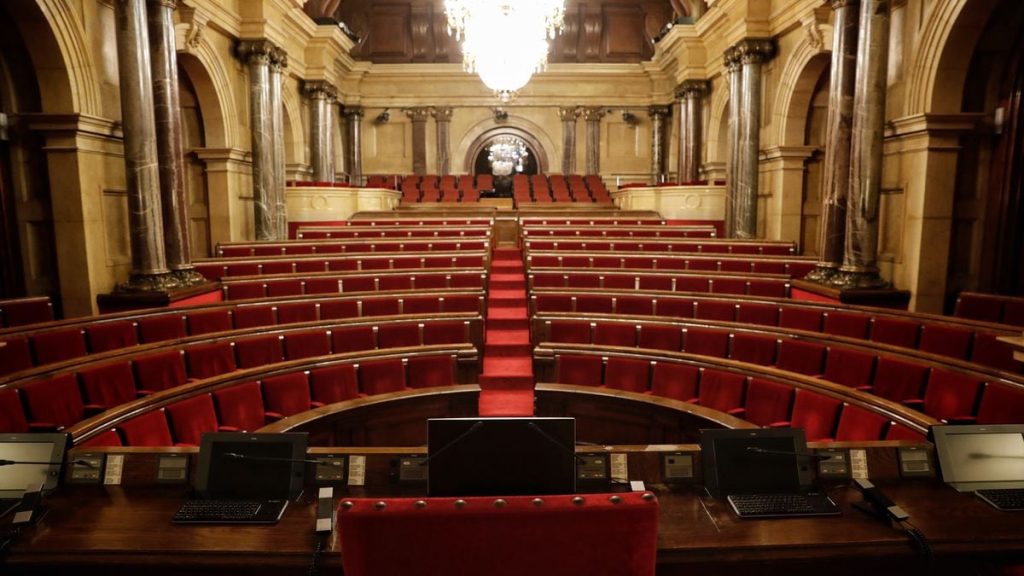The Government is going to appeal this Tuesday before the Constitutional Court the processing of the popular legislative initiative to reactivate the path towards independence for Catalonia that the Parliament admitted for processing last February because it considers it to be clearly unconstitutional. The Executive believes that the initiative exceeds the powers of the Catalan chamber, as the Constitutional Court has repeatedly ruled, because it seeks to alter the constitutional order, instead of following the mandatory legal guidelines to promote a constitutional reform. The appeal is based on the abundant doctrine of the Constitutional Court in this regard, in sentences that the Parliament is well aware of, as evidenced by the report from its legal services on the processing of the proposal. The central thesis of the challenge is that the Catalan chamber cannot once again contravene an explicit mandate of the Constitutional Court, and therefore requests the full annulment of the initiative, including its ten articles and its transitory provision, as well as its immediate suspension while the court studies its resolution on the substance of the matter.
Prior to this, the Government requested an urgent opinion from the Council of State on the appropriateness of the appeal. The permanent commission of the Council met on Monday morning and unanimously approved a report stating that there are various reasons — those actually set out in the Government’s appeal — to challenge the aforementioned legislative initiative before the Constitutional Court. In parallel, another appeal, this time for protection, has been filed with the Constitutional Court by the MPs of the PSC in the Catalan chamber. This challenge argues that the processing of the popular legislative initiative violates the rights of parliamentarians in the exercise of their functions, as established in Article 23 of the Constitution. The Government, on the other hand, is going to question the constitutionality of the actions of the Parliament’s Bureau through the procedure established in Article 161 of the Constitution, which provides for the suspension of the challenged act for an initial period of five months, extendable if no judgment on the substance of the matter is issued during that period.
The initiatives of the Government and the PSC are coordinated, for the obvious reason that each of them responds to different legal frameworks, but they are complementary. The news about the concern that the agreement of the Parliament’s Bureau on the aforementioned popular legislative initiative had generated within the Constitutional Court reached the Government as soon as its processing was approved. This concern has increased within the Executive and the PSC following the calling of early regional elections in Catalonia and in view of the statements of various pro-independence leaders about the next step to link with the demands of the “procés” and the illegal referendum of October 1 in favor of Catalonia’s independence. The filed or imminent appeals reflect the will to cut off speculations about a possible self-determination referendum, according to sources within the institution and the political organization that are promoting them.
The Constitutional Court will also have to examine another protection appeal that has already been formalized, filed by the MPs of Ciudadanos in the Parliament of Catalonia. Their spokesperson, Carlos Carrizosa, announced the challenge to the admission of the popular legislative initiative in favor of Catalonia’s independence as soon as it was admitted for processing by the Parliament’s Bureau. The Ciudadanos’ request for protection aims to annul the Bureau’s decision, as it affects the political participation rights of its parliamentarians, to the extent that they would be affected by the processing of an unconstitutional initiative. The appeal also requests that the Constitutional Court take a precautionary measure consisting in the immediate suspension of the processing of said proposal. Precautionary measures are not usually granted in protection appeals, unless their non-adoption could cause serious irreparable damage, but there is nothing preventing one from requesting it.














